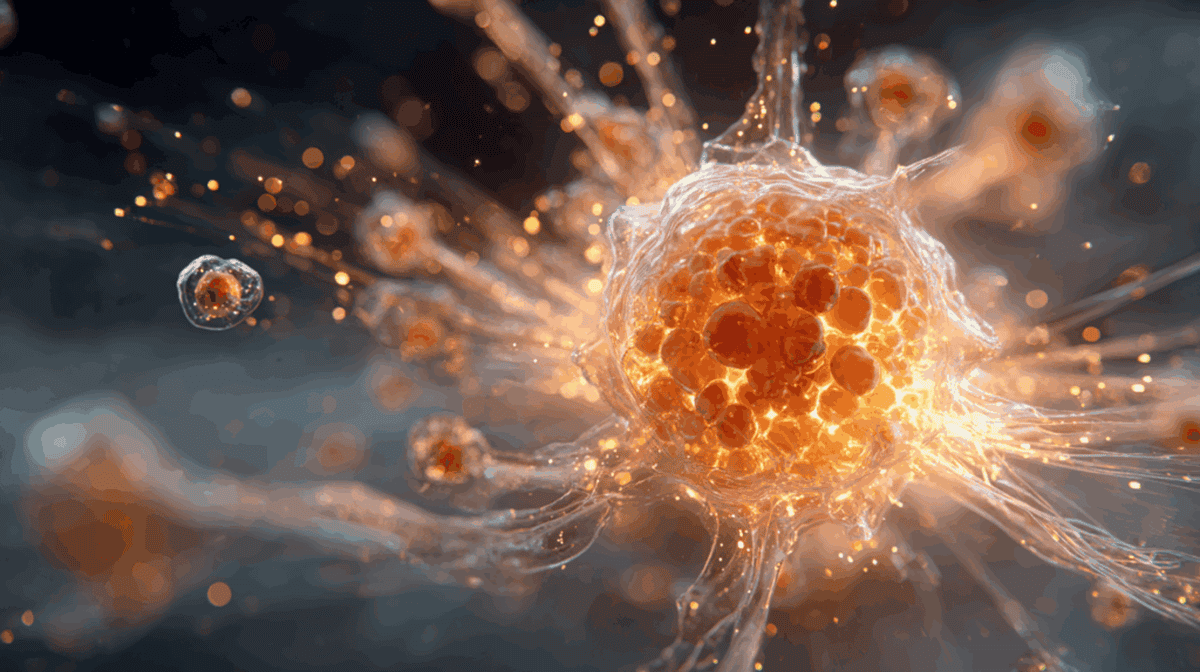
They Help the Immune System vs Cancer
Researchers found that lung and skin cancer patients who got COVID-19 vaccines reported significantly increased survival periods. For patients with some of the deadliest cancers, getting a COVID shot within 100 days of starting their immunotherapy was linked to a substantial improvement in survival.
The vaccine appears to improve the results of immunotherapy, “sensitizing” stubborn tumors. The mRNA inside the vaccine seems to make immunotherapy drugs work on patients that didn’t respond to treatment before.
Curing Cancer
What if we could just point our own immune system at a tumor and say, “go kill”? It sounds almost silly; after all, the whole point is that cancer tumors trick the immune system. But in recent years, it’s starting to work. Researchers are “training” the immune system in various ways to detect and kill cancer cells.
Among these methods is a revolutionary class of drugs called “immune checkpoint inhibitors” or ICIs. These drugs achieved what seemed impossible: they delivered miracle cures for patients with late-stage cancers, melting away tumors. The scientists who discovered them got a Nobel Prize.
But there’s a catch.
These drugs (you may know them as Keytruda or Opdivo) only worked for a small fraction of patients. For the vast majority, the drugs did nothing. The immune system remained asleep at the wheel. For over a decade, doctors have been trying to figure out how to make them work for everyone, or at least more people.
This is where the COVID-19 vaccine comes in.
Making a Cold Tumor Hot
A “hot” tumor is already swarming with T-cells. T-cells are some of the body’s best “soldiers,” and they’re the ones you want fighting tumors. The ICI drug just needs to give them “permission” to attack. But when you get a “cold” tumor, it’s like a ghost town. The immune system hasn’t even noticed it. Using an ICI drug here doesn’t do anything.
Researchers at MD Anderson Cancer Center and the University of Florida, led by a team including Dr. Adam J. Grippin, Dr. Elias J. Sayour, and Dr. Steven H. Lin, noticed a pattern in their patient data. They looked at hundreds of patients with non-small cell lung cancer (NSCLC) and metastatic melanoma, all starting ICI therapy.
They sorted them into two piles: those who got a COVID mRNA vaccine within 100 days of starting treatment, and those who didn’t. The numbers stunned them.
For 884 lung cancer patients, the unvaccinated group had a median survival of 20.6 months. For the vaccinated group, it was 37.3 months. The three-year survival rate leaped from 30.8% to 55.7%.
They saw the same thing in 210 melanoma patients. The unvaccinated group had a median survival of 26.67 months. For the vaccinated group, the researchers couldn’t even calculate their median survival because, in the paper’s own words, it was “unmet.” Too many of them were still alive.
“The implications are extraordinary — this could revolutionize the entire field of oncologic care,” said co-senior author Elias Sayour, M.D., Ph.D., a UF Health pediatric oncologist and the Stop Children’s Cancer/Bonnie R. Freeman Professor for Pediatric Oncology Research. We could design an even better nonspecific vaccine to mobilize and reset the immune response, in a way that could essentially be a universal, off-the-shelf cancer vaccine for all cancer patients.
Stephen Griffin, Professor of Cancer Virology at the University of Leeds, who was not involved in the study, praised the results.
“This remarkable paper describes an unforeseen benefit from COVID mRNA vaccines. A specific group of cancer patients receiving the vaccines within 100 days of beginning immunotherapy treatment were observed to gain significant benefit in terms of survival and disease progression.”
Confirming the Results
Already, this would have been a striking find. But the researchers didn’t stop there, because there’s an important caveat.
“We should be cautious before drawing conclusions,” says Dr Lennard Lee, Associate Professor in Cancer vaccines at the University of Oxford. “Patients who are well enough to receive a vaccine are often those already doing better, which makes it hard to separate cause from coincidence. Only a randomized trial can tell us whether the vaccine itself drives the effect.”
So the researchers tried to demonstrate the validity of the mechanism on mice. They found that at first, the vaccine sets the body’s immune system on alert, triggering a protein called Type I Interferon. This Interferon washes over the body, “resetting” the immune system. It wakes up “scout” cells and tells them to start hunting for trouble. These newly-activated scouts don’t just hunt for the COVID spike protein. They swarm into the “cold” tumor they had previously ignored. They finally see its mutated cancer proteins and sound the alarm.
The “cold” tumor is now “hot.”
In reaction to this, the tumor starts lifting its defenses. But in doing so, it basically tells the T-cells to attack it. Simply put, the vaccine forces the cancer to use the one defense mechanism the ICI drug is designed to break.
But there was still one question to answer. Was it the COVID part of the vaccine that was doing this work, or the mRNA platform? Turns out, it’s the latter. The Nobel Prize-winning technology that saved us from the pandemic was, all along, a key that could unlock our body’s fight against cancer. It makes sense because the first designs for mRNA vaccines were initially meant to fight cancer.
This doesn’t mean the COVID shot prevents cancer. It’s a treatment boost. And this study was a “retrospective” look back. The next step, a full clinical trial, is already being designed.
The study was published in Nature.
First Appeared on
Source link






